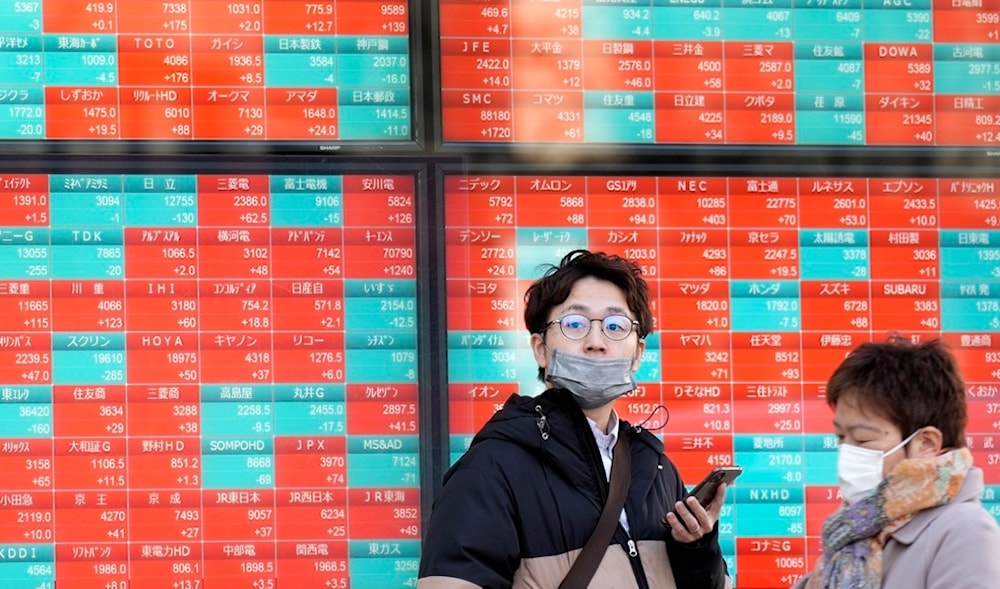8,881 companies face bankruptcy in Japan at end of FY2023
Amid a severe economic recession, almost 9,000 companies in Japan have gone bankrupt, marking a nine-year record.
-

People stand in front of an electronic stock board showing Japan's stock prices at a securities firm Monday, February 26, 2024, in Tokyo. (AP)
At the end of the 2023 financial year, on March 31, 2024, 8,881 companies in Japan went bankrupt, marking a nine-year all-time high record and a 30% year-on-year growth, data from the Teikoku Databank research institute showed.
According to the institute, 2,082 additional companies faced bankruptcy compared to the 2022 financial year, signifying a 30.6% increase.
"For the second year in a row, the number of bankruptcies increased from the previous year, and approached a high level not seen for nine years," the institute said.
The overall liabilities amounted to 2.44 trillion yen ($16 billion), marking a 4.1% increase from the previous year. This surpassed the 2 trillion yen mark for the second consecutive year, a milestone not reached in a decade. Among these liabilities were debts from 19 major bankruptcies, each with debts exceeding 10 billion yen.
The service, retail, and food and beverage industries experienced significant increases in bankruptcy filings, with growth rates of 28.7%, 42.5%, and 56% respectively compared to the previous year.
Additionally, there were 313 bankruptcies attributed to labor shortages and 837 cases labeled as "bankruptcies due to high prices," both of which marked record-breaking numbers.
Japan ends negative rates, markets embrace for decision aftermath
In March, in efforts to curb inflation, Japan's central bank discontinued its policy of negative interest rates after eight years, marking a significant change to one of the most aggressive monetary easing programs globally, which aimed to increase bank lending and boost demand.
The Bank of Japan (BOJ) has made its first interest rate hike in 17 years, raising the short-term policy rate from -0.1% to a range between zero and 0.1%. However, analysts caution that due to a delicate economic recovery, any future increases in borrowing costs will likely be gradual.
This means that the BOJ is now the final central bank to move away from negative interest rates, as it assessed that it has the 2% inflation rate "within sight."
The decision was supported by nine of BOJ's policy board members and opposed by two, the Kyodo News reported.
The recent wage growth has been a significant factor in boosting confidence among members of the BOJ board concerning achieving their 2% inflation target. This target has been elusive for Japan, which has struggled with deflation and economic stagnation for decades.
The agreement between Japan's major employers and labor unions for a substantial 5.28% wage increase is particularly noteworthy. This wage hike is the largest since 1991, indicating a significant shift in wage policies. The hope is that this increase will kickstart a "virtuous cycle" where higher wages lead to increased consumer spending, which drives up prices and stimulates further economic growth.
Read more: Japan falls behind troubled Germany on world's biggest economies list

 3 Min Read
3 Min Read








